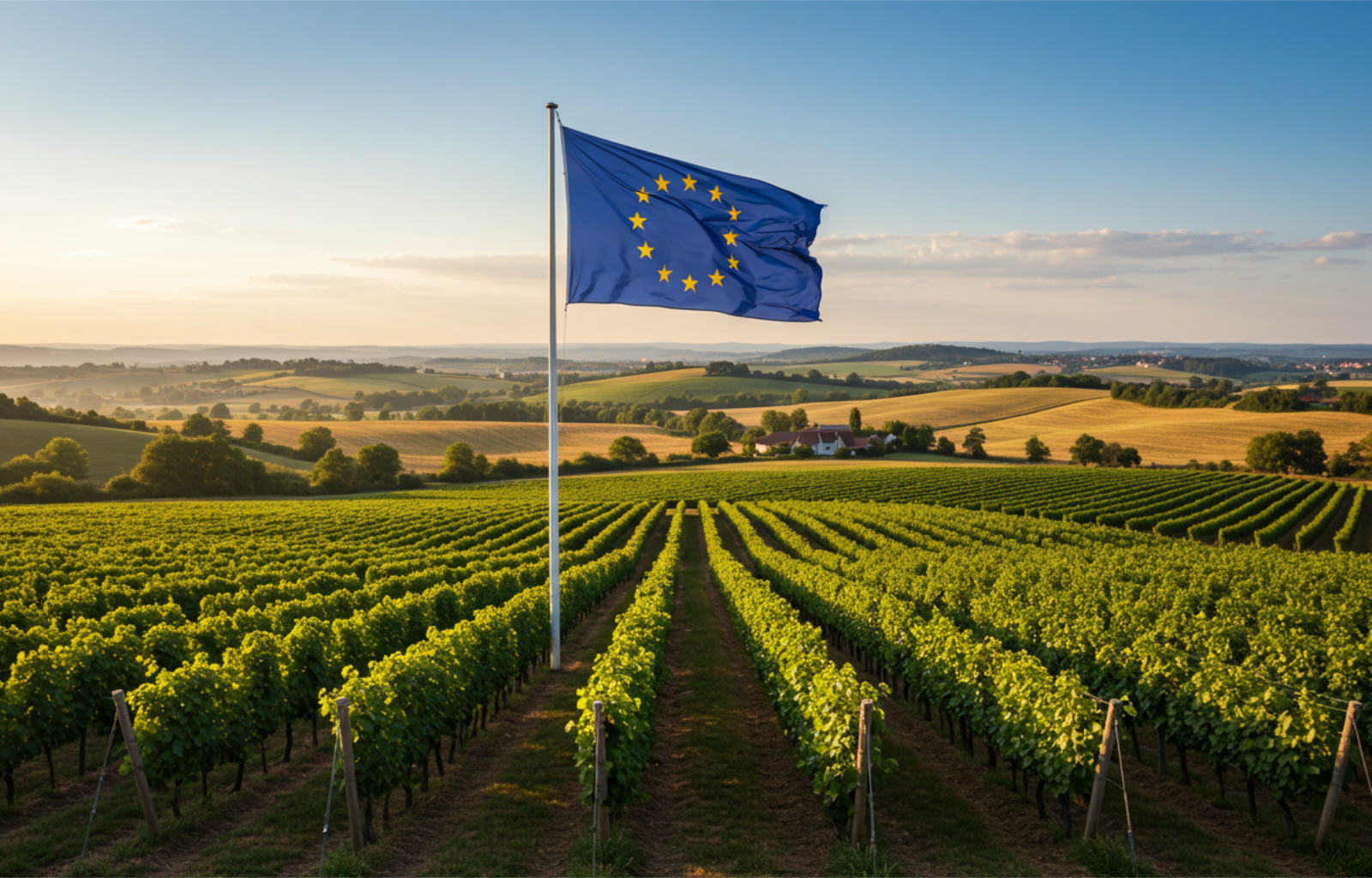The new EU wine tax: in the words of Draghi, we continue to impose duties on ourselves

From the pages of the Financial Times, in statements of rare candour, Mario Draghi comments that ‘Europe has managed to impose duties on itself’. Not only duties, actually: to these, one must add suicidal regulations and odious levies. The wine sector, too, is now in danger of learning this, despite itself, as it tries to avert the introduction of a new EU wine tax – the latest gimmick of the Commission, which is increasingly in the grip of a dirigiste, short-sighted and self-destructive fury.
The possible new tax, as confirmed by the Commission, is foreseen in the work to revise the existing directive on minimum rates of excise duty to be applied to alcoholic beverages, which is currently zero for wine and fermented products such as beer. Part of the BECA – Beating Cancer plan presented as early as February 2021, the tax increase has been on the roadmap of the EU project since its conception and would serve, according to the institutions, as a ‘strategic cancer prevention tool’ and aimed at covering the social costs of alcohol abuse.
The health-conscious one, on the other hand, has always been the perfect alibi for prohibitionist policies, implemented by institutions that resort to paternalism to ennoble the cause with which, in reality, they only aim to replenish the treasury coffers – while making happy, in the meantime, a few pressure groups convinced, as if we were still in the 1920s, that the scourge ofalcoholism is fought by prohibition.
Prohibiting does not mean making people drink less, but worse
If there is a lesson to be learned from the history of American Prohibition, it is precisely that by banning alcohol consumption, individuals do not drink less but worse – allowing, in the meantime, individuals like Al Capone and Lucky Luciano to make their fortunes. Whether wine is banned completely or made more expensive by decree, the result does not change: by artificially raising prices, it would not be the quantity of individuals abusing the substance that would fall, but the quality of the product consumed. In order not to bear the price increases imposed by the new regime, in fact, consumers would end up buying cheaper, i.e. poorer wine: in essence, more harmful to health. Similarly, producers would be incentivised by the trend in demand to offer poorer products, levelling down the quality of the output of the entire sector, with obvious negative repercussions for the entire supply chain that – it should be remembered – starts from the European agricultural supply chain: a continental heritage already sufficiently put to the test by protectionist and no longer sustainable Community policies.
How to achieve the opposite of the desired effect
It is the inability of the ruling class to see, in the words of Frédéric Bastiat, ‘what is unseen’ beyond ‘what is seen’: what is unseen are the unintended consequences of dirigiste and constructivist policies, driven by the belief that the will of individuals within society can be ‘engineered’ and bent to that of the legislature. In this case, an increase in the tax rate on wine for ostensibly health-related purposes would have the opposite of the desired effect: instead of promoting the wellbeing of citizens, Brussels would be promoting the consumption of more harmful spirits – in defiance of all the qualities that make wine one of the most appreciated European products in the world, whose export is worth more than EUR 30 billion a year, with Italy and Spain dominating the market share ranking and France leading by value.

The Commission’s bad intentions, as the trade representatives warn, are not limited to raising excise duties, but aim to impose new constraints on alcohol advertising and to limit cross-border sales, with all due respect for the free movement of goods: a rather hypocritical move on the part of those who rightly accuse Donald Trump of having introduced unfair duties only to succeed in the enterprise, going back to Mario Draghi’s lapidary reflections, of imposing them himself.
We can only hope for the effectiveness of the joint outcry of the entire Mediterranean area, which alone contributes about half of the world’s wine production. Brussels would not mind, from time to time, a federalist approach, both regulatory and fiscal, for a supranational institution that, on the contrary, succeeds in the feat of showing itself to be even more centralist than the most monolithic nation-states.











